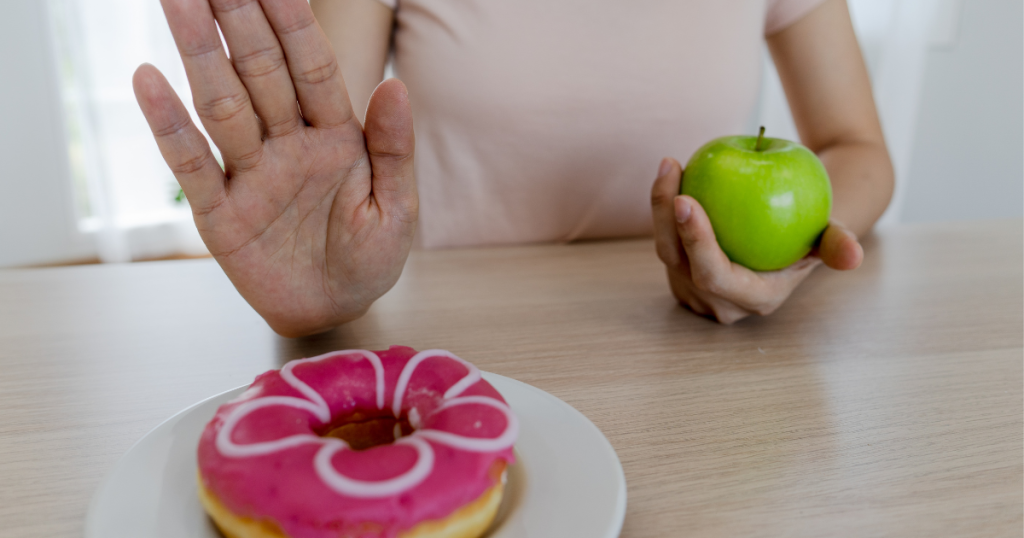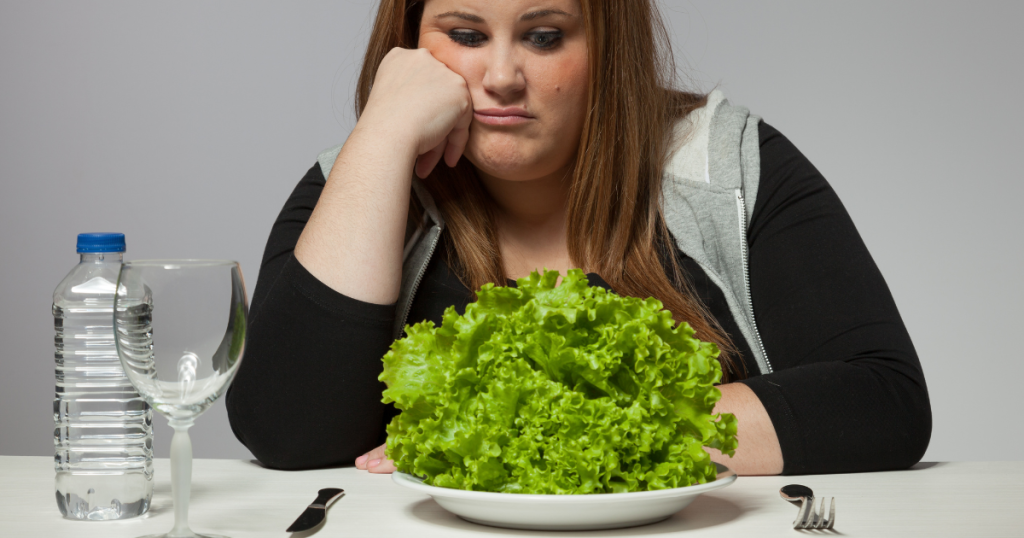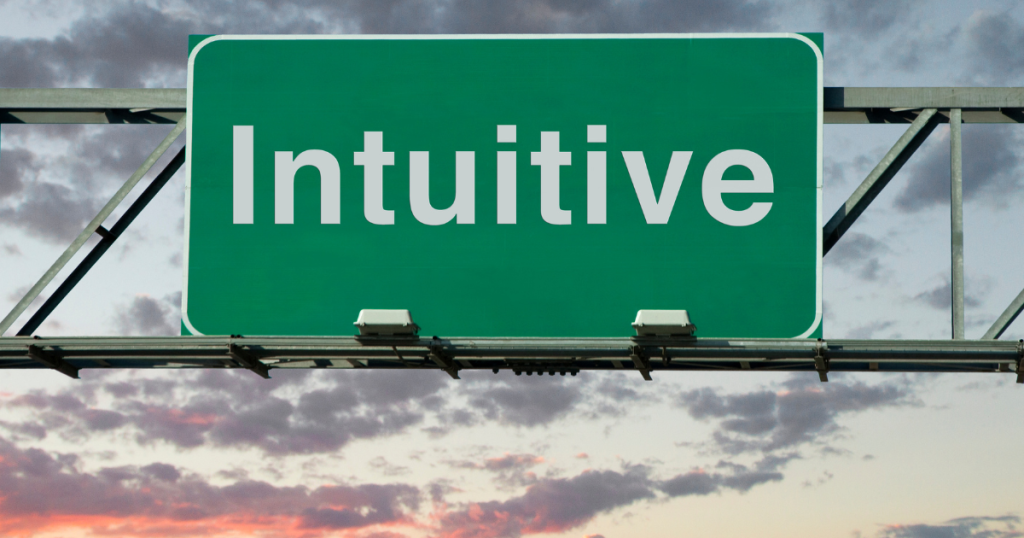We want it all, don’t we? And we want it without strings attached. (No surprise! We Americans tend to be self-indulgent that way.) It’s an attitude that extends beyond relationships with people or even money. It carries over into our relationship with food, as well. And, because our enjoyment of food is so contradictory to society’s standards for unrealistic thinness, we have to learn to rebuild trust with food.
(Or maybe even build it in the first place.)
Why do we have difficulty trusting food?

Using “trust” and “food” in the same breath will sound like an oxymoron if you don’t think of food in a “relationship” sense. But the mere fact that food is essential for life puts every one of us in an intimate relationship with it.
Add in the countless contexts in which we eat, then the full spectrum of associated emotions, and that relationship starts to get…complicated.
This food is good. That food is bad. Boring is good. Comfort is bad. Breakfast is the most important meal. Eating after 7:00 is off limits. Warm biscuits remind me of home. German chocolate cake reminds me of my ex-boyfriend.
Healthy vs. unhealthy. Thin vs. fat. Righteous vs. guilty.
And how are you supposed to know whom or what to trust when the celebrity food-du jour changes from day to day? One day kale is the secret to a long life, and the next day it’s causing kidney stones and iodine deficiency.
Sadly, instead of figuring out ways to rebuild trust with food, many of us would rather avoid or limit foods alleged to be “bad.” And that means, consciously or unconsciously, intentionally or unintentionally, we attach a moral quality to food.

Sounds crazy, doesn‘t it?
But cultural pressures and messages to lose weight change our relationship with food. Suddenly food is public enemy #1. A living, breathing, thinking entity with the power to destroy us.
And eating becomes much less about satisfaction and enjoyment and more about caloric restriction and deprivation.
Congratulations. You have just entered the escape room of guilt, shame, and self-loathing.
When the prescribed deliberate weight loss methods inevitably fail, we think it’s our fault. We didn’t try hard enough. We lack willpower.

Not to be outwitted in a battle of willpower, we try again, this time with a different dieting method.
And there is no shortage from which to choose – Paleo, Raw Food, South Beach, Keto, The Zone.
If any one of them worked, there wouldn’t need to be so many. At least there wouldn’t need to be so many “new” and “groundbreaking” approaches to weight loss.
And the assumption that the secret boils down to “calories-out must be greater than calories-in” is oversimplified and unscientific.
This is a process that takes time. A lot about your relationship with food likely needs to change. Examples include the belief that:
There are a lot of forces at play here, trying hard to persuade you to believe their claims.
Cha ching. Cha ching.
The weight loss/”wellness” industry profited to the tune of $224.27 billion in 2021. That’s billion…with a “b.”
We keep dieting, and we get the same result, over and over.

The belief that we can’t trust ourselves around food becomes a resounding mantra.
Tagline: Don’t believe everything you read. Especially if money is involved. (Which it usually is.)
Food gives our bodies and minds the fuel to think and execute most of our daily tasks. What, when, and how we eat affects every facet of our lives: how we look, feel, sleep, move, and even think. (If you’re a frequent reader here, you’ve heard this before.)
So of course we tend to believe there is no way to rebuild trust with food. Diet Culture, the wellness industry, and lifestyle-change programs profit from us continuing to believe there is no way to trust ourselves with food.
It makes sense that you would prefer to continue dieting because it feels safer…and oh so much more familiar. (And you’re in good company.)
Diet Culture shows up as all-or-nothing, perfectionistic thinking regarding food and health. Rules to eat “x” but not “y,” to “start Monday” if you ‘blew it,” to achieve thinness at all costs.
The overriding message: If you’re not thin, you’re fat. And fat is bad.
Diet Culture promises that if you follow external rules rather than trust your body’s wisdom, you will succeed.
This kind of messaging makes trusting food almost impossible.
To be able to rebuild trust with food, we have to prioritize differently. We have to change the goals in order to change the rules.

And the best way to do that?
Change the goals, one step at a time.
In a nutshell, here are the 4 steps to changing your goals and rebuilding your trust with food:
- Identify if your goals are S.M.A.R.T.
- Develop tools for a long-term, sustainable relationship with food.
- Think long-term about building trust with your body.
- Fire the food police.
Let’s talk about each in detail….
Are your goals S.M.A.R.T.?

S.M.A.R.T. is an acronym for:
- Specific.
Defining your goals improves the chances that you will be successful.
In the case of rebuilding trust with food, become more knowledgeable about what your own body needs. Honor those messages instead of trying to adhere to a prescribed diet, - Measurable.
Develop alternative methods to measure progress toward your goals.
For example, instead of using a scale to see how much you weigh, measure progress by noticing how your preoccupation with weight and food decreases over time. (The less often dieting is on your mind, the more your mind is free to think of other things.) - Achievable.
Create goals that are attainable and achievable by ensuring that you have the resources needed to reach the goal. Read #3 below for specific guidance. - Relevant.
Align your goals with the reality of what is possible. Diets promise you the world, but don’t deliver.
The dieting industry has the highest rate of consumer dissatisfaction, yet it continues to proliferate.
If the probability were similar in other situations, attorneys general would be on it immediately! - Time-based.
Give yourself a reasonable time frame for achieving your goals. This is not a race. Even giving yourself the time frame of your lifetime works.
Develop tools for a long-term, sustainable relationship with food.
This is a pocess that takes time. A lot about your relationship with food likely needs to change. Examples include the belief that:
- food = morality.
Thetruth? There is no bad food or good food. Food is food.
(Unless by “bad” food you mean rotten, spoiled, or contaminated. Sometimes people think of good food as “clean.” I wonder if the food is clean because they’re eating in the bathtub?) - you are defined by your food choices.
You’re gluttonous, lazy, out of control if you eat cookies or french fries. You’re virtuous if you eat plant-based only.
No, no, and no! - someone or something external to you knows what your body needs better than you do.
Consider that even the definition of “good” food changes. Cultural trends are to thank.
For example, grains were once “good,” but then the pendulum swung and most carbohydrates are now “bad.” Anything considered delicious and indulgent is deemed a “bad” food, while “good” foods are “guilt-free.”
Intuitive Eating, created in 1995, is a fantastic resource and one of the best ways to rebuild trust with food. Its core feature is learning to tune in to your own body’s messages.
The 10 principles of Intuitive Eating are gold!
Think long-term about building trust with your body so you don’t need a plan or program for eating.
When Kelsey Miller embarked on Intuitive Eating, she had this to say: “I had to learn how to eat everything all over again, constantly reminding myself that everything was allowed, nothing was off-limits, and that there was no such thing as ‘good’ and ‘bad’ food. It was all just food.”

- Reject the Diet Mentality
- Honor Your Hunger
- Make Peace with Food
- Challenge the Food Police
- Respect Your Fullness
- Discover the Satisfaction Factor
- Honor Your Feelings without Using Food
- Respect Your Body
- Exercise – Feel the Difference
- Honor Your Health with Gentle Nutrition
(You can read more about the 10 Principles of Intuitive Eating in the book, or simply Google “intuitive eating.”)
The principles work in two ways:
- They help with attunement to physical sensations from within your body to get your biological and psychological needs met.
- They remove any obstacles and disruptors to attunement. Interference with the principles tend to originate in the mind as rules, beliefs, and thoughts.
Start trusting your internal signals rather than relying on external signals such as the clock and other people. The internal signals can range from stomach sounds to thoughts about food.
Fire the food police!

Firing the culprit in trust issues with food means being proactive on your own behalf. That may mean:
- curating your social media feeds.
Who cares what someone else eats in a day? You are not that person, and your needs are different. - challenging yourself to resist Diet Culture.
Take your power back! Think about what your values are and live in alignment with them.
If you value superficiality, conformity, and lies, then embracing Diet Culture is a way to live in alignment.
But if you value self-respect, self-care, and attunement, dropping out of Diet Culture is an imperative step toward living in alignment. - realizing that most images are photoshopped and filtered.
What you’re looking at and comparing yourself to is not even real! - becoming a more critical viewer of how pervasive and strong the “thinner is better” messages are.
So yes, you absolutely can rebuild your trust with food.

Doing so may require discerning nonsense from truth; choosing not to engage in talk about food and weight; calling yourself out on fatphobia; and eating ice cream (and pasta and other so-called forbidden foods) with joy (and in public).

In Kelsey Miller’s words, rebuilding trust with food is “about less shame. It’s about not letting fear make my meal or fashion choices.”


